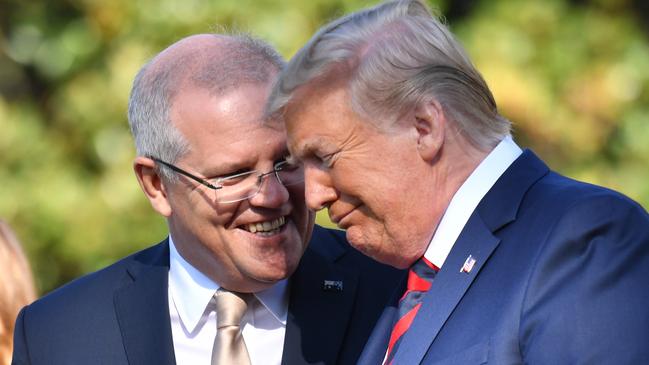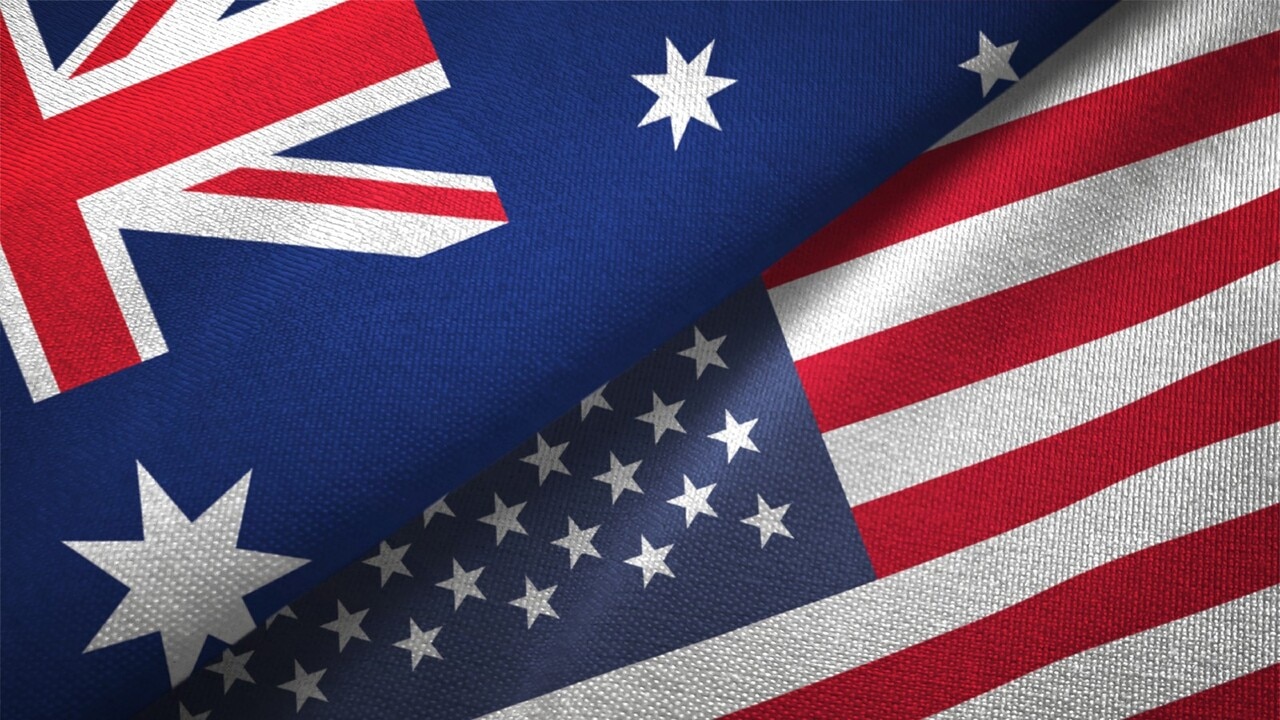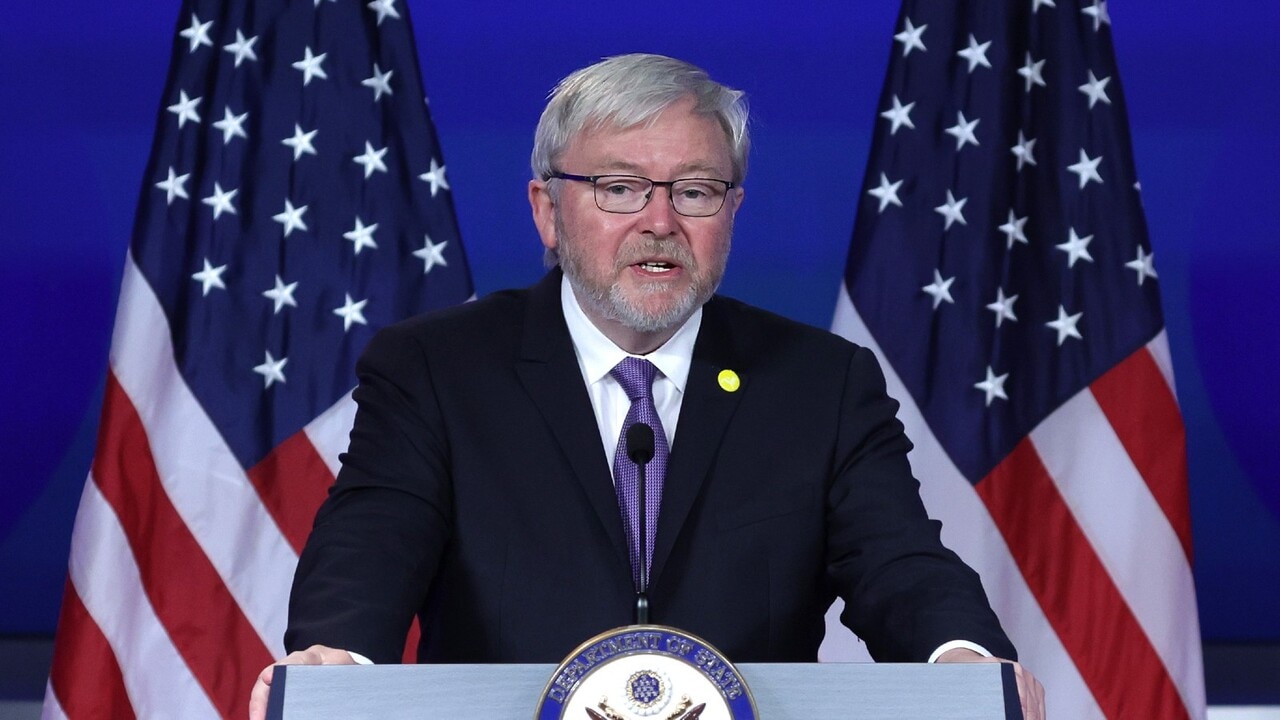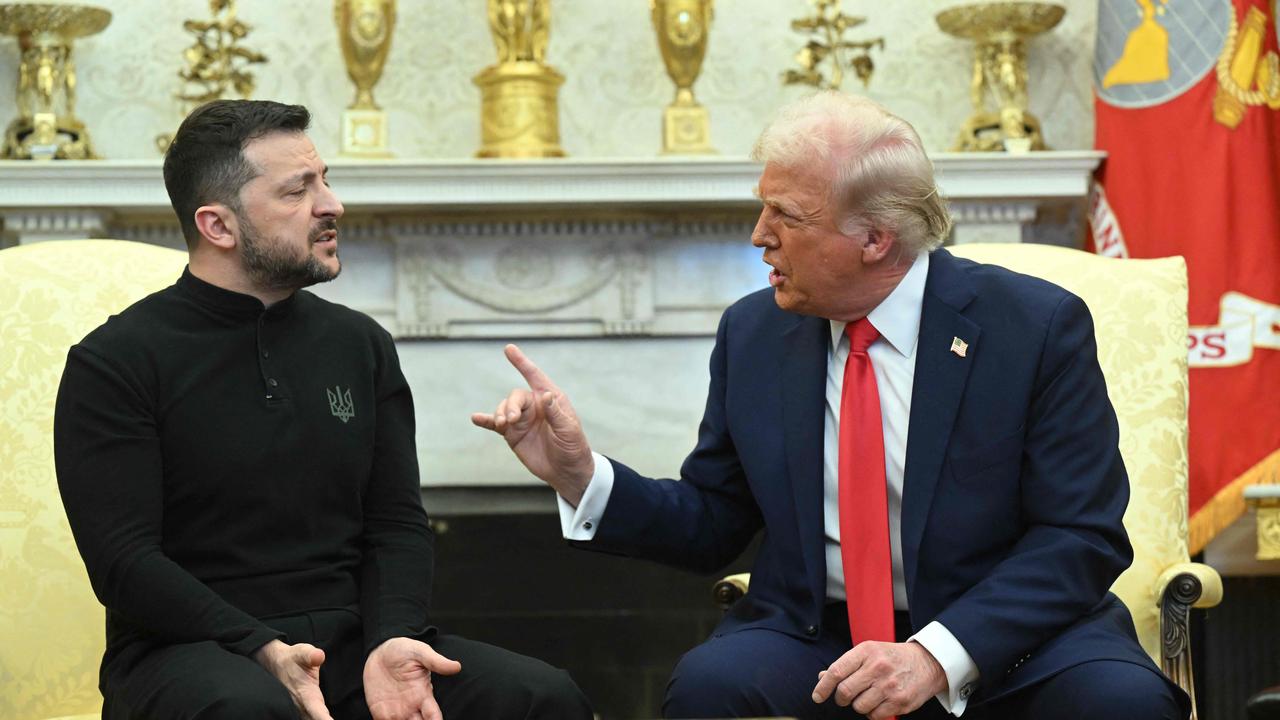Scott Morrison says Labor must embrace AUKUS as a military deterrent against China
Scott Morrison says Labor must embrace AUKUS as a military deterrent against China, warning that the stabilisation of ties with Beijing must not obscure strategic intent behind the landmark agreement

Scott Morrison says Labor must embrace AUKUS as a military deterrent against China to harness its full potential under a second Trump administration or risk undermining the appeal of the landmark agreement.
The former prime minister said Beijing had changed tactics in its diplomacy with Australia – “using the carrot, not the stick” – but cautioned that China’s long-term objective remained the same: to isolate the US.
Mr Morrison warned of risks to AUKUS in the stabilisation of relations with Beijing, saying Australia could not be “apologetic” about the purpose of the security agreement – especially given the sharp Republican focus on China as a strategic adversary.
In comments that will put pressure on Australia-China relations, Mr Morrison said “in promoting AUKUS here in the US we need to appreciate that its primary reason for being is to provide a deterrent against adversarial threats. The primary one of those is China. And to pretend it’s not does not aid the argument well here”.
“We must be conscious that support for AUKUS in the US, particularly amongst Republicans, is because it is a very successful partnership to provide a military deterrent to their biggest strategic rival. And don’t diminish that. Own it. Because it’s true. And if owning it means the Chinese don’t like it, well, too bad.”
Speaking to The Australian in Washington, the key architect of the AUKUS pact said Trump 2.0 would be unorthodox but more experienced, generate disruption to find policy solutions, unleash pent-up energy into the US economy and unlock more cheap energy rather than focus on global climate goals.

Mr Morrison said more effort should be directed to developing AUKUS pillar two, arguing it was the “reason for AUKUS” – to create “a single defence industrial base ecosystem between the three jurisdictions (US, UK and Australia) where there’s less regulation, there’s greater integration, there’s more innovation”.
Pillar two would ensure “our capabilities of advanced technology are ahead of our adversaries”, with Mr Morrison saying there “needs to be attention focused on the demand signal by the budgets that are being allocated to pillar two”.
He suggested Australia was in a good position to avoid being hit with new US tariffs – “provided we don’t stuff it up” – and would be wise to expect pressure to increase defence spending. But the former prime minister said this should happen anyway, arguing “we have got to head towards three (per cent of GDP)”.
Australia should also embark on new round of advocacy by promoting the benefits of the AUKUS agreement in Washington as the “banner arrangement for allies and partners throughout the entire world”.
“The argument I’ve always made – when I was making it back to President Trump last time or at other times, the argument I make about AUKUS today is that the US will not get a better deal from any other country than us,” he said. “You want to know how to be a good ally of the United States and get on well and do well and all of this? Do what Australia does. Australia is investing in the US industrial base. Australia brought AUKUS to the table. Australia has been there on every occasion.”
Under AUKUS, Australia has committed to providing $3bn towards the US submarine industrial base, with Mr Morrison also noting the US had to increase the rate of its submarine production.
“It’s right to acknowledge it. But if anyone’s going to fix it, it’s these guys,” he said of the incoming administration. “And the other thing I remind everyone is that AUKUS isn’t just the Virginia subs.”
Under AUKUS, America has agreed to provide Australia at least three Virginia-class boats before Australia builds a fleet of new SSN-AUKUS submarines based on a British design incorporating key US technology.

Mr Morrison said the new administration would be keenly focused on the Indo-Pacific and that incoming national security adviser Mike Waltz held a critical position for Australia by sitting at the junction of the “integration of trade and economic policy and security policy”.
“There’s a primacy … being focused on the Indo-Pacific. I think they really do see that as the central feature of everything. And everything else pretty much orbits around that.”
Another former Liberal prime minister, Tony Abbott, also told The Australian that navigating the relationship between China and Washington under the new Trump administration would pose fresh challenges.
“We won’t be able to be tough on China in Washington and kowtow to China in other fora,” he told The Australian in Washington. “We’ll have to actually make our actions and our rhetoric coincide in a way that it hasn’t over the last couple of years.
“This idea that we can stand alongside Xi Jinping and make statements in favour of free trade, that the Chinese communist establishment promotes as being in some way anti-Trump – we won’t be able to do that without repercussions.
“We’ve just got to accept that … we can’t be even-handed between the United States and China. We can’t put short-term economic interests ahead of the long-term national interest. I think that’s what the government has tended to do over the last year or so.”
While selling lobster to China was “fantastic”, Mr Abbott said “the idea that this means that China’s our great friend as opposed to our great challenge is just crackers”.
Mr Abbott – who also said defence spending should be increased to 3 per cent of GDP – said he expected Mr Trump not just to “de-risk, but to decouple (with China)”.
“And that’s why I think it is highly likely that he will go ahead with very heavy tariff increases against China,” he said.
Mr Morrison said tariffs would be used as a tool to “talk the Chinese down from their overproduction economic model, which is dumping products all around the world unsuccessfully”.
They would also be used as tool to secure other outcomes, including cracking down on the scourge of fentanyl pouring into the US.
“(Trump’s) not constrained by those conventions which say, ‘oh, you can’t use this policy and that policy to achieve that outcome’. He says, ‘I’m the president. I’m going to use this lever and that lever to get that outcome’. So he’s using trade to get a border outcome.”
Mr Morrison warned that China had not changed, and was still trying to “drive a wedge between us and the United States”.
“When I stood up to China, I was very conscious of this. I knew what was at stake. I knew we would take hits for it, but the alternative was unthinkable,” he said. “And so now you’ll see that Xi is taking a different tack. And he’s using the carrot, not the stick … But it’s designed to do the same thing – and that is isolate the US.
“Our interests are not served by being isolated from the US. Not because we’re a client state. It’s because we’re like-minded democracies that believe in Western civilisation and the power of market economies and freedom.
“You can’t say that about China. You can say a lot of things about China. But you can’t say we share that. And we never will.”




To join the conversation, please log in. Don't have an account? Register
Join the conversation, you are commenting as Logout